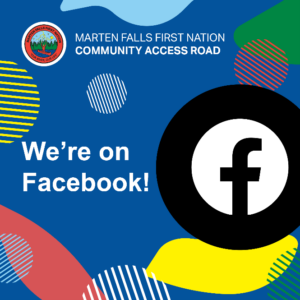Marten Falls First Nation (MFFN) Community Access Road
December 2022 update
Current and upcoming activities
Welcome to the Marten Falls First Nation (MFFN) Community Access Road December 2022 E-Blast with updates on current and upcoming activities.
This E-Blast features:
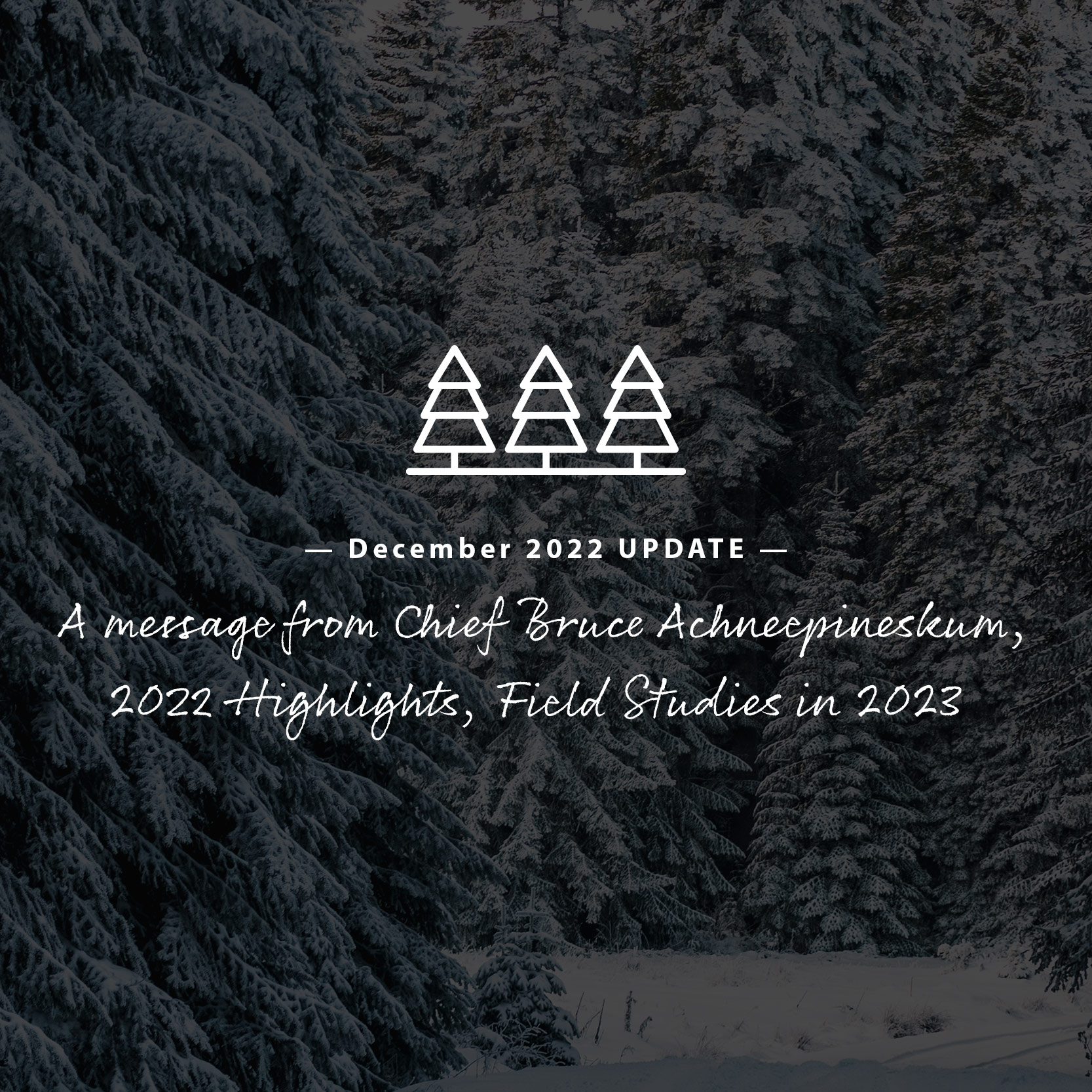
Greetings on the Holidays!
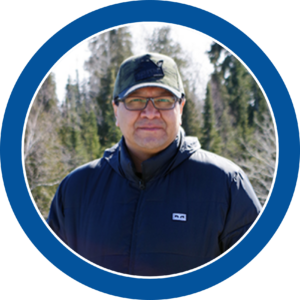
As we gather with our families for the holidays, it is a good time to reflect on our progress to date on our projects and our hopes for the new year! Our team keeps on working on our Community Access Road and it is progressing well. It is with hope we can achieve another year of success and move along our long-term objectives of what the road project will eventually bring: access to better health care, a decrease in freight costs of goods, access to health care, and a chance for our members to return home, amongst other benefits of a Community Access Road.
We are also mindful of the ongoing important work that has to be done and look forward to working in the new year collaboratively with all parties.
On behalf of the Chief and Council of Marten Falls First Nation, we are wishing you a safe and joyous holiday season and a Happy New Year!
Chief Bruce Achneepineskum
2022 Highlights
2022 was a great year for the planning phase of the Community Access Road Project. There was a return to normalcy for many people and communities this year that allowed us to meet in person once again and progress the field study programs. As the year reaches a close, we’d like to thank you for your continued interest and involvement in the Community Access Road, and for the insights you have shared. We appreciate your perspectives and know that your feedback helps strengthen the decisions we make through the planning process.
A lot was accomplished this past year. Here are some key highlights:
- Meetings and Discussions with Indigenous communities, government agencies and interested persons: We had multiple virtual meetings in 2022, but we also saw a return to in-person engagements with two Public Information Centres. The Project Team visited Marten Falls First Nation, Thunder Bay and Geraldton in June, November and December to share updates and milestones related to the Environmental Assessment / Impact Assessment process. This was also an opportunity to engage in face-to-face conversations, listen and receive direct feedback on the Community Access Road. We very much look forward to more opportunities to meet and continue discussions in the new year. Please visit our Get Involved page to learn more about these events.
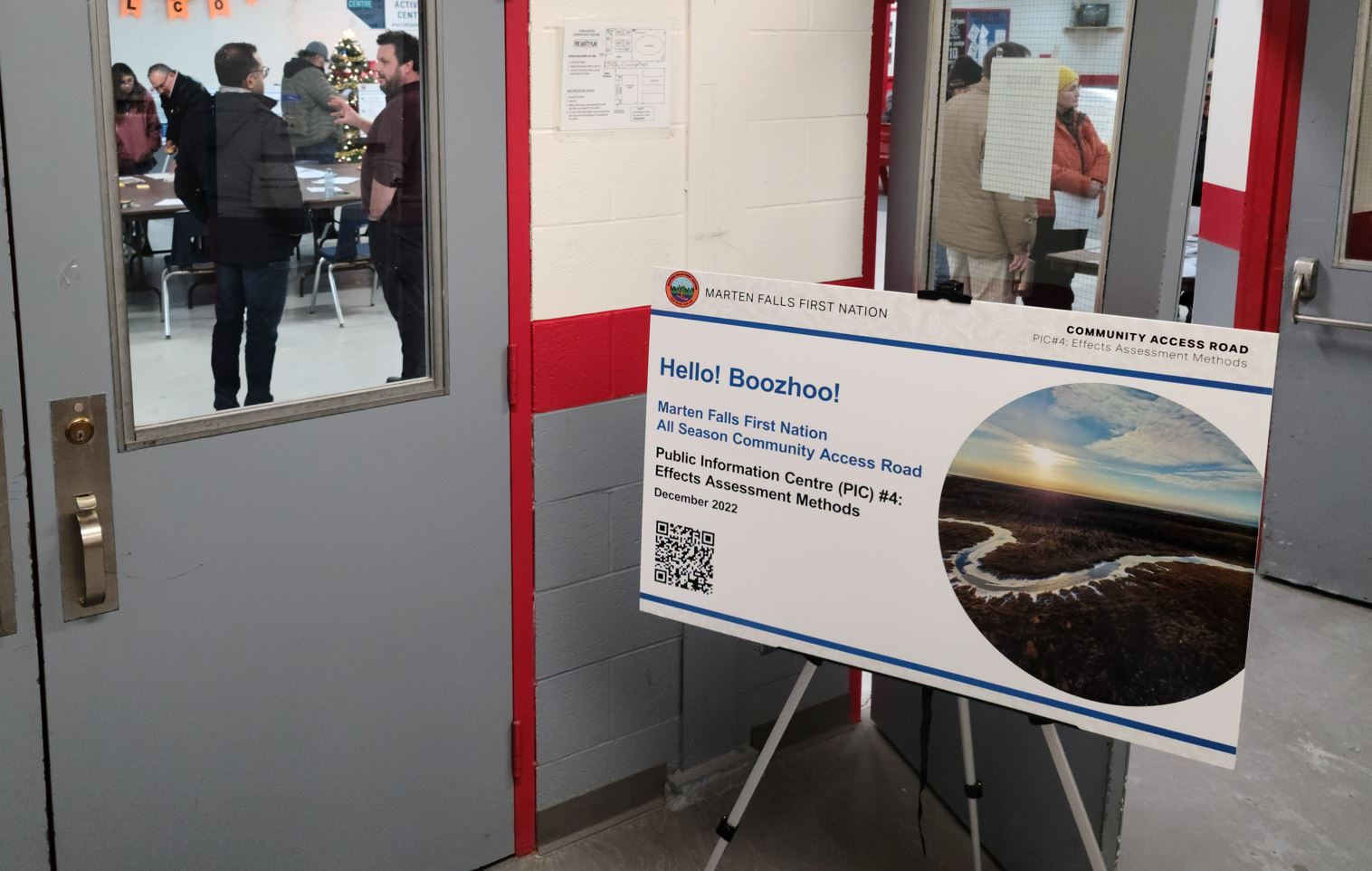
- Valued Component Webinars: We started a new Webinar Series this year to unpack the valued components we are studying in the Environmental Assessment / Impact Assessment. Live webinars on Animals and Wildlife (specifically moose (moozoog), caribou (atigwag) and furbearers) and on Surface Water, Fish and Fish Habitat have already taken place and can be viewed here. Weekly webinars will return in the new year on January 10, 2023 and will discuss Archaeology and Cultural Heritage. Save the date and check out our Get Involved page to register.
- Field Studies: Field programs studying existing conditions and effects assessments for the technical disciplines have taken place this past year including: Groundwater and Geochemistry; Aquatics (surface water, fish and fish habitat); Physiography, Terrain and Soils; Vegetation; Wildlife; Birds; and Ungulates (Atigwag and Moozoog; Caribou and Moose). In advance of each field study, we distributed Discussion Guides asking key questions for input to help shape our program plans. We also followed up with emails once dates were confirmed. Highlights of 2022 field programs can be found here!
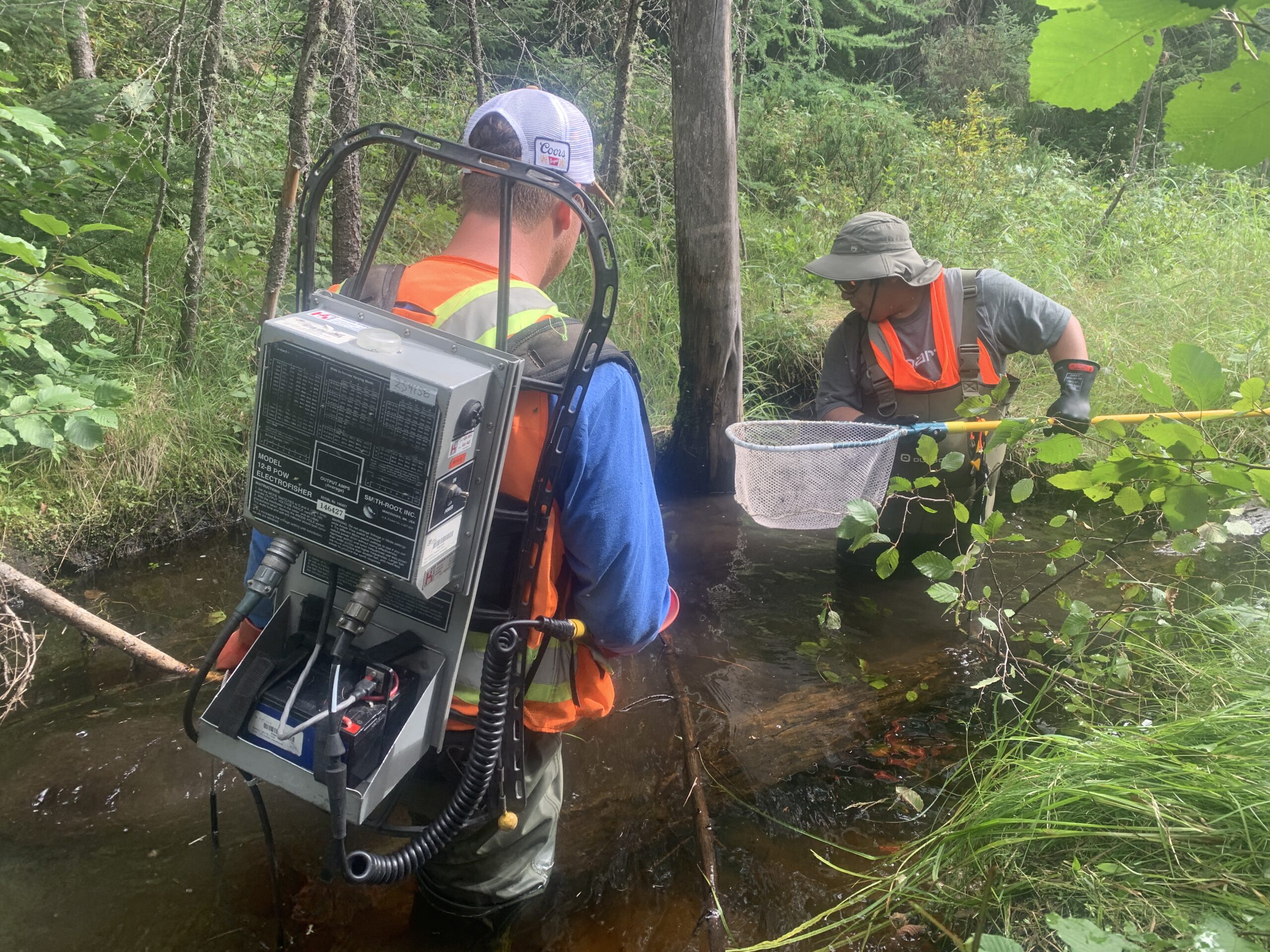
- Update on the Proposed Aboriginal and Treaty Rights and Interests Study Areas: Updates were made to the study areas for the Aboriginal and Treaty Rights and Interests assessments that are to be completed for the Marten Falls Community Access Road Project. The proposed Project Development Area now considers potential aggregate sites, temporary construction camp locations, and construction access roads. Further details can be found here: Indigenous Knowledge Program
- Community Coordinators Hired: Two Marten Falls First Nation Community Coordinators were hired this year. Susanna Baxter and Rowena Moonias both bring valuable experience working in and outside of the community and we’re excited to work with them.
- Timeline Extension Request for the Impact Statement: The Community Access Road Project is subject to a federal Impact Assessment, which requires an Impact Statement within three years of the Notice of Commencement of the Impact Assessment. The Project has requested a 3.5-year extension, which would shift the dates from February 24, 2023 to July 24, 2026. Information on this request can be found on the Impact Assessment Agency of Canada website.
- Valued Component Videos: We developed a number of videos in 2022 to showcase the valued components we are studying as part of the Environmental Assessment and Impact Assessment. Videos on Furbearers, Air Quality, Cumulative Effects and others can be found on our Multimedia page here.
Field Studies Updates
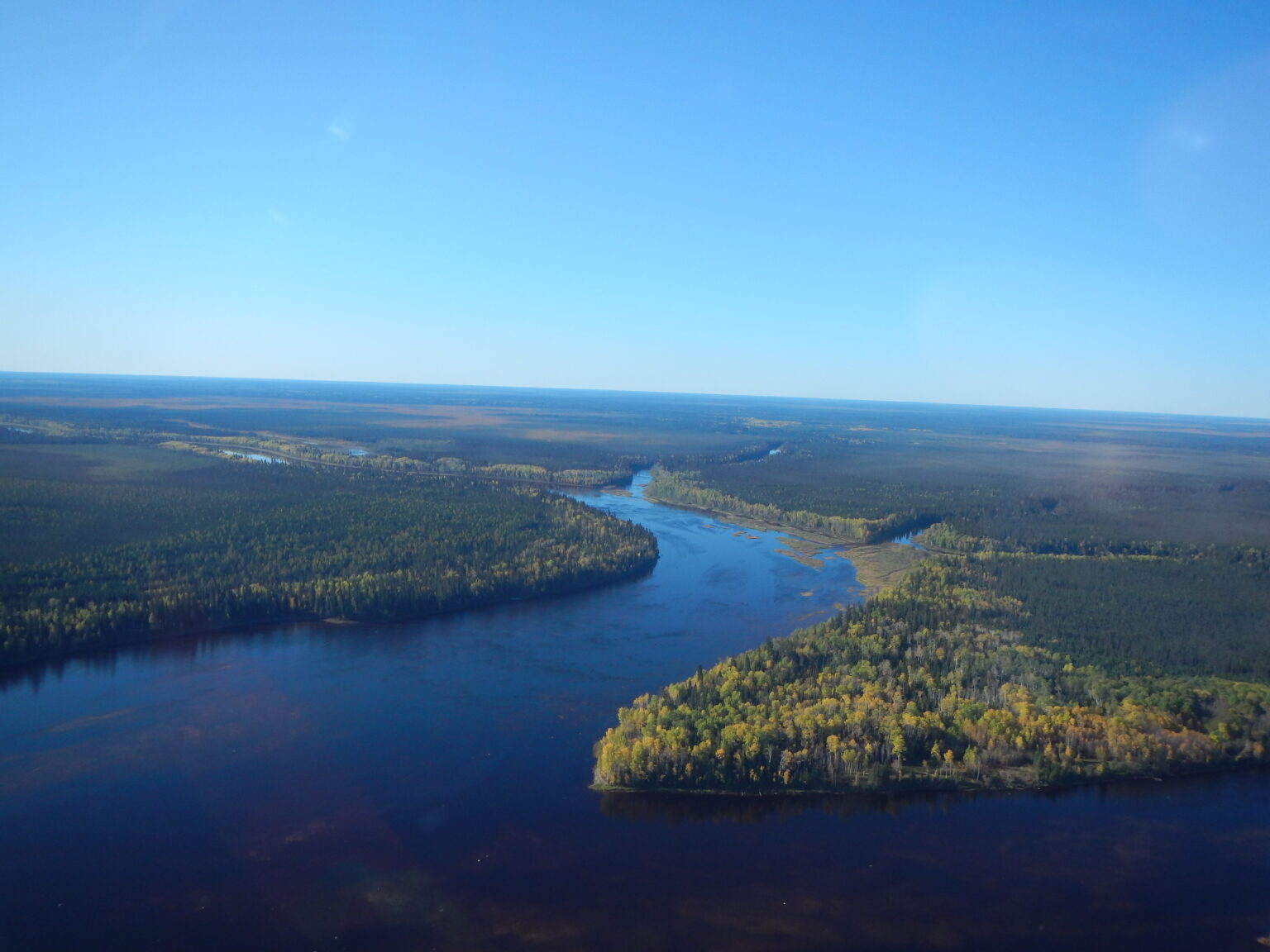
Field Studies will continue in 2023. The following programs will occur between January and May 2023, with exact dates being provided once confirmed:
Upcoming Winter Field Study Updates
- Furbearer Winter Tracking Surveys: Field crews will fly in a helicopter to look for tracks of wildlife in the snow. Transects, or straight lines through the study area, will be walked to document the number of track sets, species, location and habitat type encountered.
- Winter Ungulate Aerial Surveys: Surveys will be conducted using a fixed wing aircraft and helicopter to gather information on the population and distribution of caribou (atigwag), to search for collared and uncollared groups of caribou, and to identify number of calves with caribou groups in the study area.
- Bird Autonomous Recording Unit Program: Field crews will collect the Autonomous Recording Units (ARU) that were deployed throughout the study area in March 2022.
- Wolverine (wishkobishag, wiingwa’waake) Hair Snag Surveys: Wolverine hair snag traps will be baited in the study area to help understand wolverine (wishkobishag, wiingwa’waake) demographics (male / female). Remote cameras will monitor the baited hair snag traps to help confirm if a wolverine has visited the hair snag trap.
- Collared Caribou Mortality Investigations: Field crews will conduct mortality investigations as needed associated with caribou (atigwag) that have been collared in the study area in February 2021. The mortality investigation includes determining the cause of death of the animal (e.g., predation, hunter, natural causes) and collecting the collar from the field.
- Groundwater and Geochemistry Program: Field crews will continue drilling, installing and sampling ground water monitoring wells throughout the study area. The monitoring wells will continue to be sampled three times a year for two years.
- Ungulate Remote Camera Program: Field crews will collect the remote cameras that were deployed throughout the study area in June 2021 to collect important information on the presence and seasonal patterns of caribou (atigwag), moose (moozoog), wolves (maihgan) and other wildlife.
Check out the related field program notices for more details, watch videos and fill out Discussion Guides.
*Timelines and programs are approximate and may shift; we will provide updates as required.
We Value Your Feedback
Please contact us at any time with questions or comments, or to schedule a meeting. Meetings can be arranged in-person in any community, in the Thunder Bay area, or online. We want to hear what you have to say!
Questions or comments? Contact us at 1-800-764-9114 or info@martenfallsaccessroad.ca.


